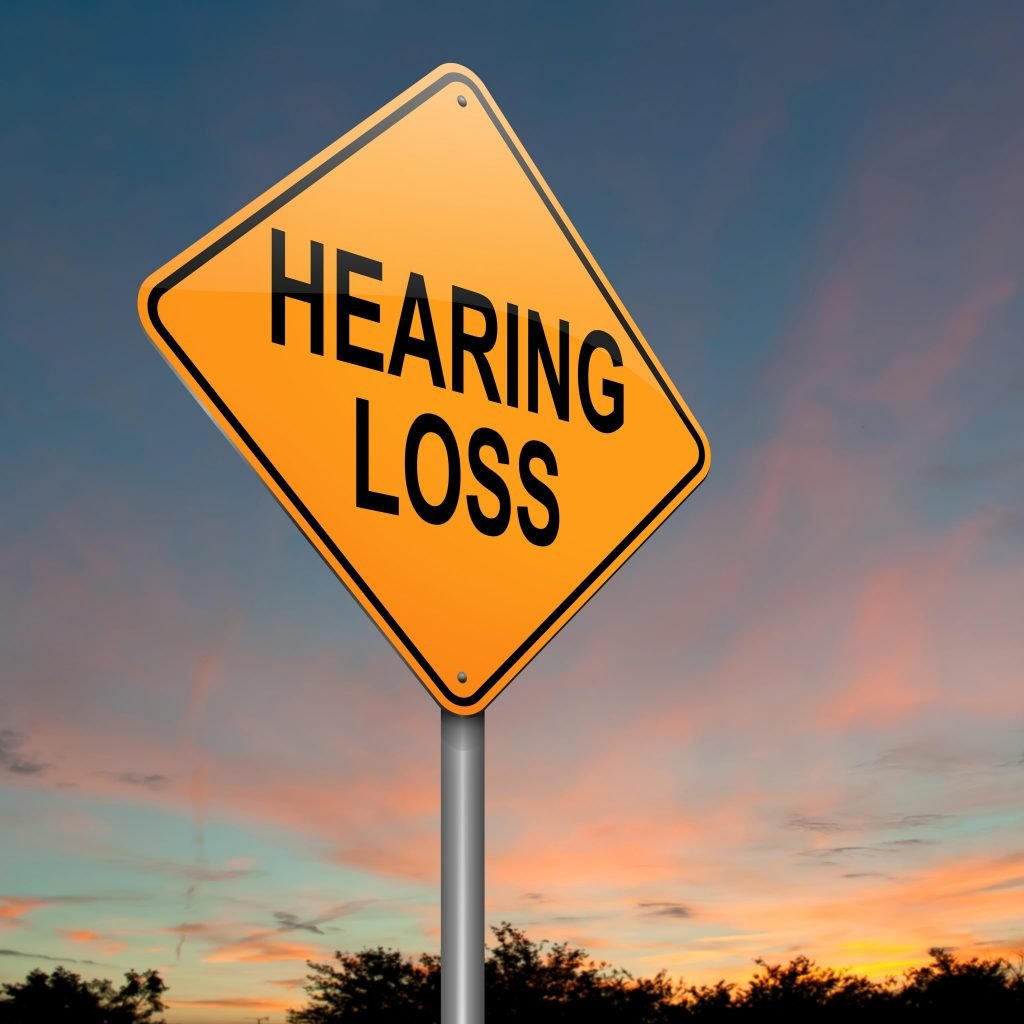 How Does Hearing Loss Happen?
How Does Hearing Loss Happen?
To understand what causes hearing loss, it’s important to understand how your ears work. In simple terms, any kind of noise creates pressure waves in the air. These sounds bounce around inside the ears until they hit the eardrum. The eardrum creates and amplifies vibrations on their way to a special area called the inner ear.
How the Inner Ear Works Normally
The inner ear has many tiny hairs that are connected to nerves. Vibrations make the hairs move in different ways, and your brain picks up these unique patterns as sound. Everything you hear, from the sound of a child’s voice to your favorite music, comes from these vibrations bumping against the special hairs in your inner ear.
When hearing loss starts to happen, it’s usually because one of the parts of the ear isn’t working correctly. Hearing loss often appears very gradually, so you may not notice the difference right away. If you think you might be experiencing hearing loss, start by taking our free online hearing test, and consider scheduling a consultation with one of our Phoenix area audiology clinics.
What are the Causes of Hearing Loss and Deafness?
While there are many different solutions to reduce the impact of the loss, you may find it helpful to take a step back and assess the more common reasons people lose the ability to hear. Knowing about hearing loss causes can highlight some key details.
From age-related loss to hearing issues that come about from medications, there are a multitude of reasons you may be dealing with reduced hearing. Take time to review the most common reasons for hearing ailments and find the right answer to your problem.
Presbycusis is the name given to the age-driven degenerative process of the human ear’s hearing abilities. As a person gets older, the odds of developing presbycusis in some capacity increase. Health professionals break hearing loss into three specific categories to help define where the issue is originating. Conductive loss happens in the middle or outer ear, sensorineural loss occurs in the inner ear, and a mixed loss involves both regions in some capacity. Pinpointing the area the loss is occurring can help your doctor find an appropriate solution.
Unilateral hearing loss can also be important to note. This is a type of loss that occurs only in one ear, as opposed to loss that affects both ears. Though knowing where the issue has spawned from will provide some insight into your issue, you also want to dive into the “why” of what causes hearing loss. The following scenarios tend to be the most commonplace.
The Most Common Causes of Hearing Loss:
Typically, usually caused by three main factors: aging, ear damage, and accumulated earwax. Ear infections and eardrum problems cause more immediate hearing loss. Here’s how it happens:
1. Aging
Over time, the tiny hairs in your inner ear can start to disappear. When there are fewer hairs around, it’s harder for your brain to pick up the signals correctly. Your ears still work, they’re just not as sensitive as when you were younger.
2. Ear Damage
Sometimes the tiny hairs of your inner ear also get damaged. This can happen to people of any age, and the effects can accumulate over time. Just like staring at the sun hurts your eyes, noises that are too loud damage your ears.
Many situations can lead to inner ear damage:
- Listening to loud music using headphones
- Going to a loud concert
- Firing a gun without ear protection
- Working near heavy machinery
- Riding a motorcycle or snowmobile without ear protection
Injuries can add up over time if your ears have to deal with loud noises constantly. Sudden explosions can cause damage immediately. That’s why wearing ear protection on the job and when having fun is important.
Ear Damage Caused by Loud Noises
Hearing loss that is induced by loud sounds can happen in a few different ways. For some, it develops over the course of time. The longer you are around loud sounds in a consistent way, the easier it is for your hearing to diminish as the years wear on. The same is true if you listen to music in your headphones at a high volume for long stretches.
While the ear can recover from certain sounds, it is more difficult for repairs to happen when you are always exposing yourself to loud and disruptive noises. Should permanent damage be done to the cells of the inner ear hairs, the loss could even be permanent. Experts state that noise-induced hearing loss can be prevented with proper precautions, so try to reduce your exposure to loud and disruptive noises whenever possible.
3. Ear Infections
When you get an ear infection, it usually makes ear tissues swell. Swelling doesn’t let vibrations or sounds pass through the ear very well, so it may seem like you’re wearing earplugs for a while. Once the infection goes away, hearing generally goes back to normal.
4. Earwax Buildups
When earwax accumulates against the surface of the eardrum, it gets in the way of sound waves. Normally, this process takes a long time, so you may not notice how much your hearing has changed until a family member comments on it. Some people have genetic factors that make their ears fill with earwax more quickly. The good news is that professionals can get rid of earwax easily, and your hearing goes back to normal afterward.
5. Damage to the Eardrum
If ear infections go too long without treatment, it can make the eardrum tear or burst. Sticking sharp objects or pushing cotton swabs too far into the ears can also cause this kind of damage. Ruptured eardrums often repair themselves naturally, but they may be less flexible to vibrations. This can cause a degree of hearing loss.
6. Your Genetics
Studying the human genome has unearthed a wealth of fascinating information about how and why people are the way they are. Everything a person is and will be is encoded in his or her DNA, including information about hearing. If there is a genetic history of hearing loss in your family, you could be susceptible to hereditary hearing loss. Issues that develop by way usually come from a parent passing a trait down to a child, with scientists stating that there are hundreds of recorded genetic issues that impact hearing alone.
Unlike age-related and noise-induced hearing loss, it can be difficult to track the severity of the genetic loss. Issues can range from mild to severe and even be one of the main causes of deafness, so it is always best to have your hearing assessed by a professional to develop a strategy to ease the symptoms.
7. Certain Medications
Though it might be expected that illness is one of the common hearing loss causes, many individuals are surprised to hear that certain medications can also contribute to this problem. If you are taking certain ototoxic drugs to fight other illnesses or conditions, it could result in hearing loss over the course of time. For example, chemotherapy drugs can sometimes contribute to diminished hearing. The same is true of certain diuretics and aminoglycoside antibiotics. Your healthcare professional will provide you with information on how you should react in the event that medication causes such issues.
What Are the Symptoms of Hearing Loss?
For many people, gradual hearing loss is a natural part of aging. If you sometimes have to ask friends to repeat something, you’re not alone. However, if hearing loss shows up more suddenly, or you have symptoms such as a fever, it may be a sign of an ear infection or eardrum damage.
Statistically, 20 percent of adults in the U.S. report some degree of hearing loss. By the time adults reach age 65, that number increases to about 30 percent. Although hearing loss is generally associated and more common in older people, the truth is that having difficulty hearing is a condition that affects people of all ages, including children. In fact, 30 school-aged children per 1000 are hard of hearing or deaf. With so many different and common causes of hearing loss, the condition is one of the largest public health issues, at the top, right after heart disease and arthritis.
Hearing loss can happen slowly or over time and occur in either one or both ears. The causes of hearing loss are many. The most common cause is aging followed by ear or head injury, a blockage by an object, wax or swelling, ear infections, increased inner ear fluid, and overexposure to very loud noises. Hearing loss symptoms are instantly noticeable, such as the need to ask people to repeat what they say, having difficulty hearing in groups, failing to hear someone speaking from behind you, needing to turn up the volume on a television or radio, difficulty with phone conversations, difficulty hearing during a film at a theatre or at noisy restaurants, dizziness, and a ringing or buzzing in the ears.
What Should You Do If You Notice Hearing Loss Symptoms?
Your ears are really important, so it makes sense to take great care of them by contacting a doctor or hearing professional.
Many times hearing loss can be slowed or reversed if you seek immediate medical attention. Don’t wait any longer, reach out to the Audiologists at Metro Hearing in the Phoenix metro area. You can send us a message or call one of our audiology office locations, and we will get you an appointment right away!
Image Credit: Shutterstock/Sam72





